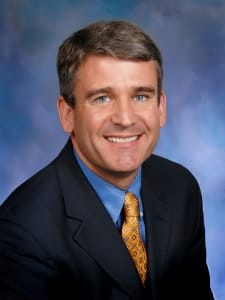In recent years, the need for physician assistants, licensed vocational nurses, midwives and other mid-level healthcare professionals has grown, causing an increased demand for qualified and experienced workers. With healthcare reform significantly impacting this workforce, physicians and medical offices will see a need to implement new staffing models to coincide with the reform’s emphasis for the use of these professionals.
The U.S. Bureau of Labor Statistics predicts that physician assistants will be the second-fastest growing health profession in the next decade (after home health aides). After representing healthcare professionals for more than 25 years, it has become apparent that medical providers and facilities need to stay on top of changing policies to effectively manage their business, stay in legal compliance and meet their bottom line. This article will explore simple and effective ways to incorporate advanced medical practitioners, also referred to as clinicians, into your medical practice, to maintaining a thriving business.
Clinicians, Not Physicians, On the Rise
Our country has seen a rise in the number of insured patients under the Affordable Care Act (ACA), and these patients are seeking medical service in record numbers. With doctors struggling to keep up with the increased demand for care, the use of clinicians is an ACA supported solution to crowded waiting rooms. The employment these professionals will help reduce the workload on doctors and allow for more patients, not just those with pressing ailments, to have access to knowledgeable clinicians.
Doctors seeking to flourish in this new age of healthcare will quickly orient their practice to include a larger number of these practitioners. Nurse practitioners and physician assistants are improving patient care by increasing patient access to medical information – especially important to those suffering from chronic diseases. With this new care model, patients may avoid emergency room visits and better manage their chronic conditions.
Appropriate Supervision
With the influx of clinicians and an ever-growing list of patient needs, supervision is crucial. While each state enacts different scope-of-practice laws (SOP), physicians should provide:
- Detailed instructions for office practice and procedures
- Written documentation regarding the clinician’s role and protocols
- A limited ratio of clinicians to supervisory physicians
- Clearly stated proximity requirements for the doctor (when supervising other practitioners)
- The ability for clinicians to consult their supervisor whenever necessary
A medical practice, and its patients, will benefit from supervisors taking the time to train and build working relationships with their professionals. A sincere devotion to this task not only improves the performance of clinicians but helps to better serve all patients.
Staying In the Black
In order to stay in business, the financial aspect of patient care can’t be ignored, and this means being aware of billing regulations when employing clinicians. As these professionals take on an advanced medical role, proper billing requirements should be communicated. Whether the payer is Medicare, Medicaid or a private provider, each healthcare entity has specific rules and requirements for paying these practitioners.
It’s important to know how clinicians are billed through separate providers. Most will require billing under an individual’s National Provider Identifier (NPI) and payment will vary depending on the particular designation. For example, Medicare pays the clinician’s employer for medical and surgical services provided, at 85 percent of the physician’s fee schedule.
While medical billing regulations tend to be complex and often change, keeping staff and billing systems current with the latest rules and regulations is key.
Liability for Clinicians
Although doctors may enjoy the relief that hiring clinicians to allow, it’s crucial to thoroughly interview and research prospective employees. Doing so will help providers protect themselves, as they accept liability for the work and billing of their staff.
Providers should also check with healthcare liability carriers for specific information about medical malpractice insurance, including payment for tail coverage once a clinician leaves their practice and a separate tort of “negligent hiring” should the clinician not be properly trained or licensed. Physicians also face liability under the fraud regulatory scheme, in areas such as the False Claims Act, Stark issues, and the Anti-Kickback statues. Providers should ensure that all clinicians bill properly for their services, and that such services comply with federal regulatory schemes. Billing the nurse practitioner or physician’s assistant as if he or she was a doctor can lead to allegations of fraud or false billing.
Without proper care in hiring, physicians could unknowingly put their practice at risk – and may result in unnecessary malpractice claims.
Closing Remarks
In the wake of healthcare reform, clinicians are evolving into “physician extenders” — filling a vital role to combat the shortage of physicians in the workforce. To survive in the new age of healthcare, providers must utilize these professionals and prepare for potential legal ramifications that arise due to the redesigned healthcare system. By working closely with an experienced healthcare attorney, physicians and medical providers can effectively follow – and stay on top of – new regulations to keep themselves out of legal dilemmas.
About the Author:
Matthew L. Kinley is a partner at Tredway Lumsdaine & Doyle LLP (TLD), a longstanding Southern California-based law firm providing a full range of legal services to privately held companies and individuals. Kinley has more than 25 years of experience and specializes in healthcare, personal injury, business counseling and litigation. He regularly advises healthcare practitioners on matters related to federal and state regulatory compliance to help them maintain a successful practice in a changing environment. For more information, visit www.tldlaw.com or call 877-923-0971.







